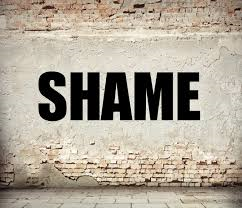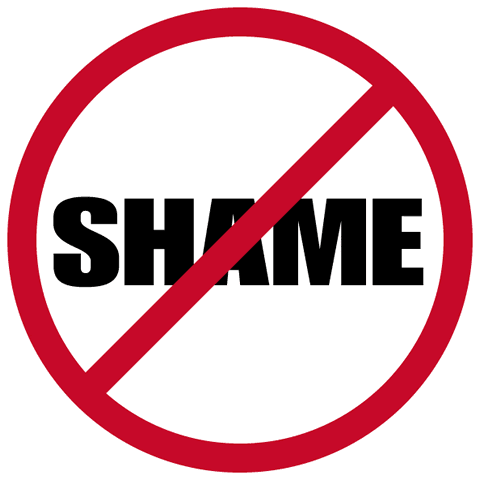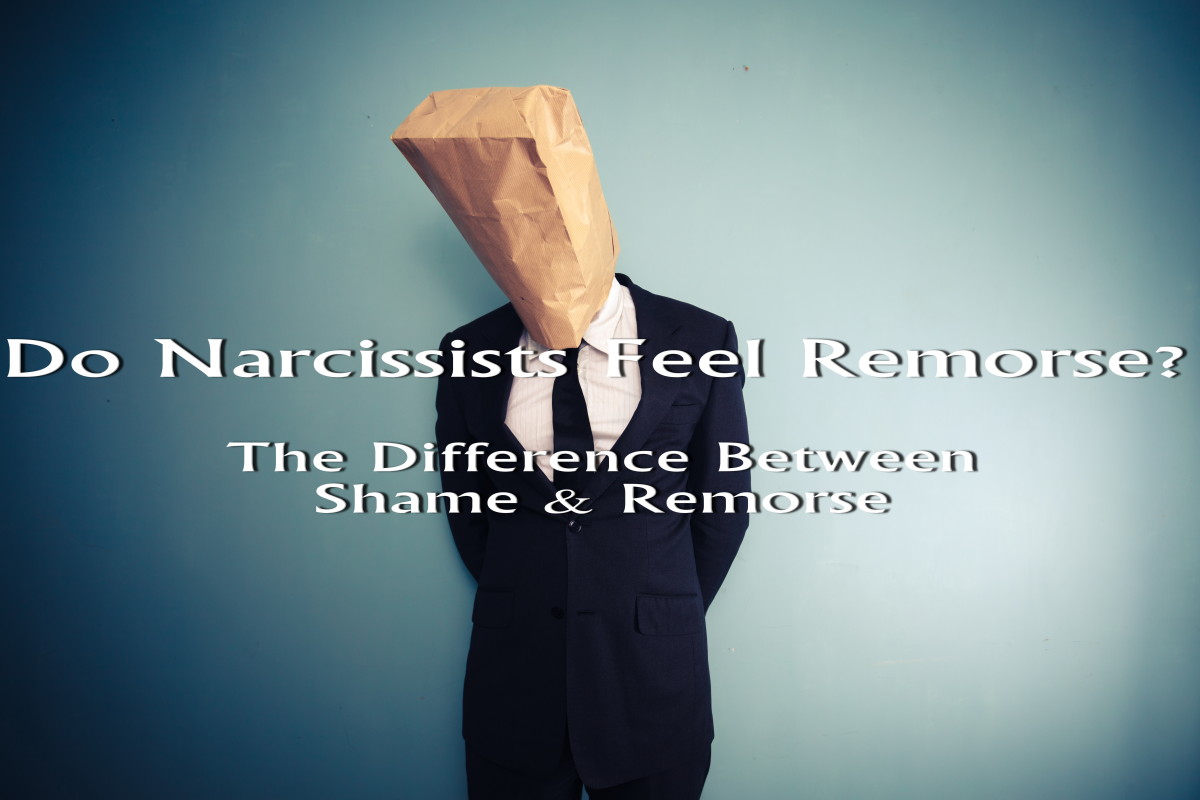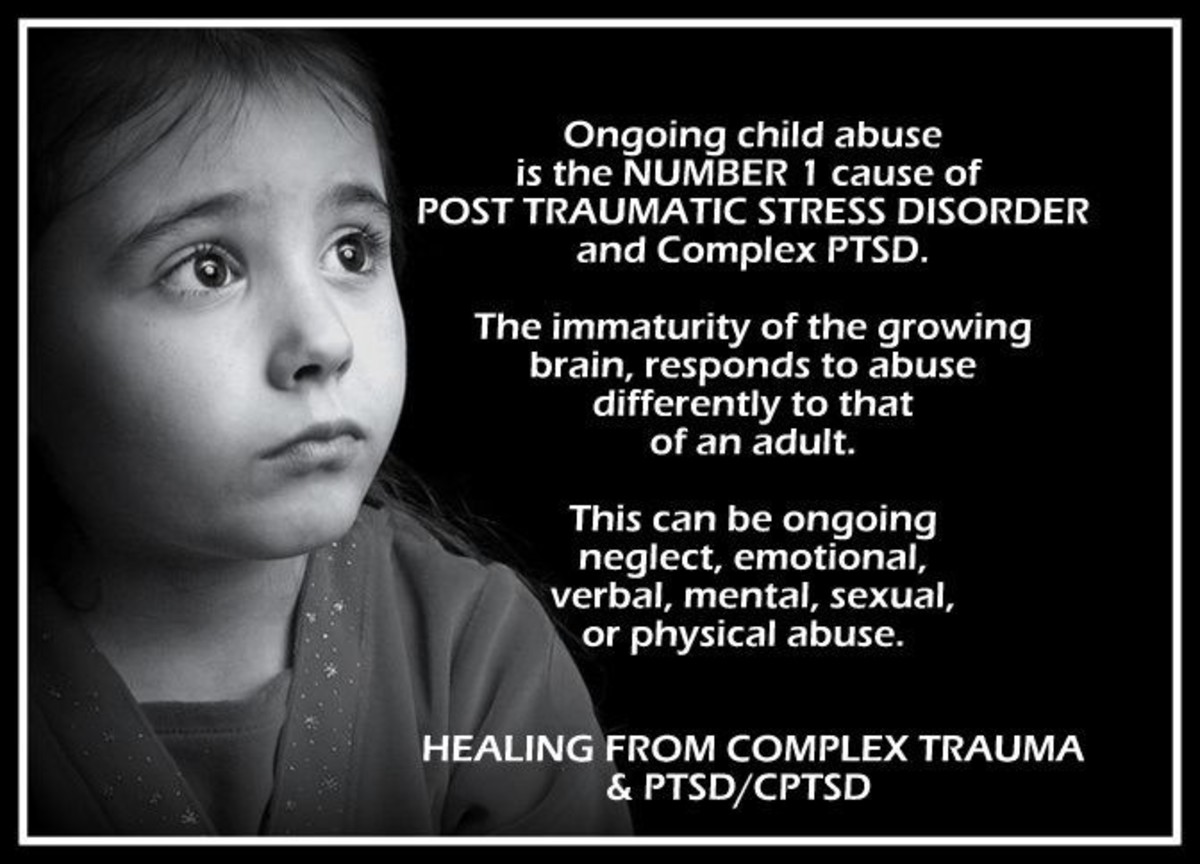Shaming

We’ve all experienced a time when someone has said or done something that dredges up guilty feelings within ourselves; perhaps it was when we took a phone call while everyone else was doing some chore or when we heard the whispers behind our back for skipping a family event. When others say or do things to make us have an emotional response for an action or lack of action, it can be interpreted in two ways either as guilt or as shame. When we feel guilt, it is considered a positive response of a psychologically healthy individual realizing that they have done something wrong and serves to help them act more positively or more responsibly in future situations. Shame on the other hand is unproductive and tends to drive people toward destructive behaviors. When someone is convinced that they are wrong as a result of shame, their sense of self-worth is eroded. Understanding the difference is easy; guilt doesn’t produce the anger, rage or other irrational behaviors that shame produces.

Shame and Guilt are not the same thing
Shame is a complex emotional response that almost all human beings have. Shyness and embarrassment are forms of shame but unless they are chronic, are virtually harmless to anyone. Humiliation on the other hand has the potential to be devastating and can lead to multiple health problems such as eating disorders, domestic violence, substance abuse, road rage, schoolyard and workplace rampages, sexual offenses and a host of other personal and social problems. Human beings need a feeling of adequacy in order to feel in control of their own lives and decisions. But there’s mounting evidence that many of the aforementioned problems occur when shame or humiliation becomes an integral part of a person’s self-image or sense of self-worth. People who are continually criticized, taunted, punished, neglected, abandoned, or in other ways abused or mistreated get the message that they do not ‘fit’ in the normal model of the world. They will develop feelings that that they are inadequate, inferior or unworthy which invoke angry outbursts or irrational self-destructive behaviors.
The separation between guilt and shame is difficult to identify but what is known is that shame is about the person, while guilt is more about the behavior. Guilt triggers painful feelings while shame is a painful feeling about oneself. Guilt is a feeling that you are deviating from your core values or those values that society associates with a larger group, such as religion. Shame on the other hand telegraphs that a person is unworthy or inadequate. Another way of saying it would be that guilt makes you feel like you made a mistake, while shame makes you feel like you are the mistake. And as damaging as shame can be to persons or groups of persons, it’s wielded by many people in the world today as a weaponized version of itself; shaming groups and individuals into conforming or following certain societal trends is becoming normal behavior.

Back in 2006....
Years ago slut-shaming was one of the earliest practices of shame. It was a stigma applied to women who violated an imaginary “code” on how they were supposed to act. Some examples were engaging in frequent promiscuous sex, dressing provocatively, and amazingly enough being sexually assaulted. Victim blaming is often lumped into this category, usually by people who say a woman “invited” being assaulted due to how they were dressed or acted in interactions with others. Society telling a woman that she is a slut and trying to shame her for it has ramifications on both sides of the equation; the woman might see herself as less of a person or worse, and the “shamers” will see themselves as winning some sort of victory and internalize it. This false victory begins the construction of an artificial “moral high-ground” belief and if unchecked, it will grow at a rapid rate.

It's Everywhere Today
We see examples of this every day on the internet. The world is full of people of all different body types, however body-shaming is a huge topic and horribly damaging to the self-esteem of millions of people who are subjected to ridicule for being too fat or too thin. We see stories about parents who shame their children by making them hold signs out in public as punishment for their behaviors. As cars pass by, those children must feel a level of unbearable shame that would easily manifest itself into violence. Men are frequently shamed for earning more money than women, usually without anyone looking at the actual circumstances. Women are shamed for breast feeding in public. Gays are shamed for sharing affection in public. Rich people are shamed for their wealth and poor people are shamed as being lazy. Religious people are shamed as being zealots and traditional people are shamed for being closed mined. People with strong nationalistic viewpoints are shamed as being xenophobic, and those who don’t openly embrace everyone else are shamed as being bigoted or racist. People who take too many selfies are shamed as being vain and people who don’t take any at all are being shamed as anti-technology or hermitlike. Those who disagree with the theories of global warming are shamed and called deniers. The list could continue for pages and pages but it’s enough to say that everyone seems to be shaming everyone for some reason.

Opression
When someone shames someone else, it’s for control and power. Internet trolls use sarcasm, name-calling, disgust, and ridicule to bait their targets, setting them for an attack with shame. In public eye-rolling, awkward body-movement, and head shaking shame a person who is trying to express an opinion. Those shaming behaviors make them feel superior to that other person, as well as communicate to them that we wish they'd be or act differently. The same way teasing is rooted in hostility; shame gains its energy from judgment and self-righteousness. Today more than ever shame is a powerful tactic and is a way to control people by using their deeply ingrained need for connection to something, whether it is a political party, a clique, or a student body. One of oppression’s principal effects is shame. Oppressive power systems confer a status of inferiority onto select groups, which is then internalized and taken for granted, thus strengthening the dominant group’s stranglehold on power. An example of this is racial discord from the impact of slavery. Decades of telling black that they were inferior actually made accept that notion, and after a while they simply acted like second class citizens without argument.

Politics and Social Justice Warriors
Unfortunately, as we have seen in the modern world we don’t even try to combat shame, instead we worship it. The Democratic Party is probably the most expert at it, being obsessed with shaming. The primary methodology is the “call out,” it’s a form of shaming which intentionally labels an individual or group as fundamentally bad or evil because they do not subscribe to a doctrine. This is especially true on the subject of Global Climate Change where anyone who doesn’t agree with their ever-changing platform is publically humiliated, embarrassed, and often removed from their job. Another huge way it’s used by Democrats is calling universities, people or companies racist in order to extract money, policy change, or “white guilt,” which usually provides them with an overabundance of unexpected benefits. The “call out” is usually used in businesses to identify “unacknowledged shame”, which allows business owners to make reparations to those groups they supposed were discriminating against without their knowledge. The LGBT community excels at shame assaults on companies who don’t have special policies for protecting their “rights.”
The latest shame attacks are levied on police departments for an artificially constructed narrative that they are all violent and too heavy-handed on minorities. This continued shaming is actually a substitute for problem solving in many people’s eyes as it only provides a quick appeasement process instead of a long-lasting real solution. Also popular today is race shaming, but in a different way than we’ve seen. Black movements are trying to shame white people for appropriating their culture, music, hairstyles, and other things they believe are theirs and theirs alone. Boys are being shamed by feminist women for doing typical boy behavior. Sports are being shamed as being too brutal and dangerous. With the presidential race in full swing, the shaming attacks have increased and the results are divisionary, pitting neighbor against neighbor, increasing mob violence and protests, and leading to boycotts and threats. The sheer numbers of psychological battles taking place across multiple fronts is alarming and growing as more groups realize the potential this type of negative attack can generate. No longer are the Democrats using this tactic exclusively as we’ve seen with self-dubbed conservative radio host Glen Beck, shaming Christians for months about supporting Donald Trump as a presidential candidate. Ted Cruz sent out mailers during the Iowa caucus shaming voters in certain districts for not turning out in higher numbers. Donald Trump shaming Megyn Kelly for doing a racy photo shoot in a men’s magazine and former candidate Marco Rubio shaming New Hampshire voters for not voting for him.

Submit or Fight?
The power of shaming is addictive and continues to corrupt more and more people, making their victim’s weak, docile, submissive, as well as anger, vindictive, and violent. Unfortunately there doesn’t appear an easy solution or end in sight. Just as the grade school bully felt that rush of power after pushing down a smaller child, politicians and ideologists enjoy it while damaging their opposition. Shaming has given social justice warriors an effective weapon to force change on society and created a violent and mean spirited environment on social media, especially when people can dish it out anonymously. Some say empathy is the only solution, others say simply standing up and refusing to give into the attackers works. Each of us is unique and allowing someone to change us by shaming tactics is basically surrendering our self-image and our soul, one tiny piece at a time.
Summary
Not my normal type of subject matter, but it is something I see as a major part of today's world - I would love to hear your thoughts on the subject. Please feel free to voice whatever you like as no comments will be denied.
Blessed Be!








